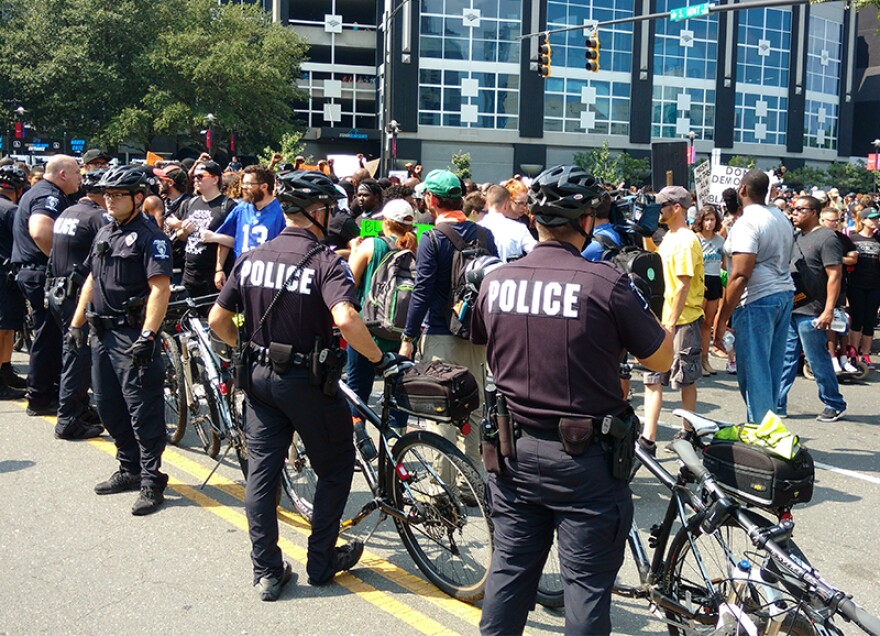The city council repealed Charlotte's controversial Extraordinary Events ordinance Monday. It was adopted before the Democratic National Convention was held here in 2012, giving police extra powers to control crowds. But after months of prodding by civil liberties activists and an internal review, the council agreed it was overused and obsolete.
There were two main concerns with the ordinance. First, it was supposed to be only for major events like the convention - a few times a year at most. But in five years, city managers declared 41 extraordinary events, 12 of those last year. They included everything from parades to Panthers games. Even Police Chief Kerr Putney said Monday that was too much.
"Basically, everything became an extraordinary event. Every large event uptown became an extraordinary event. Therefore, nothing was extraordinary," said Putney.
Meanwhile, times and threats have changed. Back in 2012, the big concern was anarchists. The ordinance passed in the midst of the Occupy Charlotte protests and just as the city prepared for the Democratic convention. The ordinance allowed the city manager to invoke special security rules, such as letting police stop and question people and search back packs.
"We're not worried about anarchists. We're worried about people doing terrorist threats to people in large spaces," said Putney.
Since last fall, civil liberties advocates have been lobbying the council to repeal the ordinance. They've argued that the rules amount to a stop-and-frisk policy, targeting some people unfairly.
Council member Julie Eiselt chairs the council's public safety committee, which reviewed the ordinance and held a public forum three weeks ago. She says the council heard clearly that people didn't like the rules.
"It's been sort-of determined that we really don't need to be using it, that in fact the police department have the tools that they need to keep people safe.
Without the ordinance, Putney says CMPD is taking a new approach to major events. They'll work with large-scale event organizers to draw up what he calls "event-specific public safety plans." They'll look at intelligence about current threats and develop plans for restricting access and traffic to keep the public safe.



